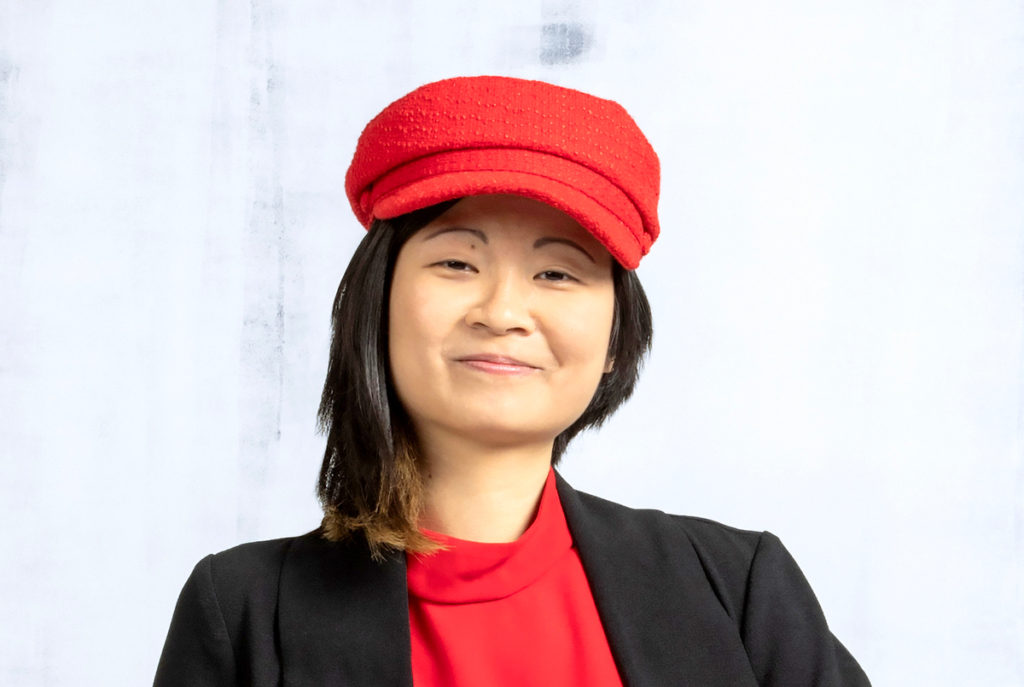
Vicki Lau is your Creative Content Collaborator of Choice. She is an industry speaker on democratizing VFX and VR insights; an issue dear to her heart. She spoke at 2016 Napa Valley, CA TEDx talk on VFX/VR . In 2018 she spoke alongside Former First Lady Laura Bush at Elliott Masie’s Learning conference. Now, Vicki Lau disrupts the unspoken working-code of the VFX/VR industry and reveals its inner workings…
indieactivity : Briefly introduce your path to VFX/VR; your experiential/experimental tutelage and your industry value?
Vicki Lau : My passion for filmmaking – and ultimately VFX – began when I was 14 years old. Being a shy and quiet child, I had no friends in school and had issues expressing my thoughts and ideas. One day, I was given a video camcorder and realized that I could use that device to not only express my ideas in visual form, but also splice them together in post-production to tell a story. It was through editing at that age that ultimately led to my solidified passion in VFX. I studied the craft in Singapore. and the United States, going in fully knowing what I wanted in terms of a career.
As for VR, virtual reality, I stumbled into the field by complete accident. It was around 2015 (when VR was still in its modern infancy) that a VR Startup in Los Angeles reached out to me and wanted to bring me on board to solve specific VR issues. Hence, I left the tech startup I was working at in San Francisco to join the Los Angeles VR startup – from then on, I realized that most of my VFX skills were transferrable to the VR niche. The unique workflow process I had created for that startup ultimately led me to even more VR opportunities and exposure – and the rest is history, at that point in time.
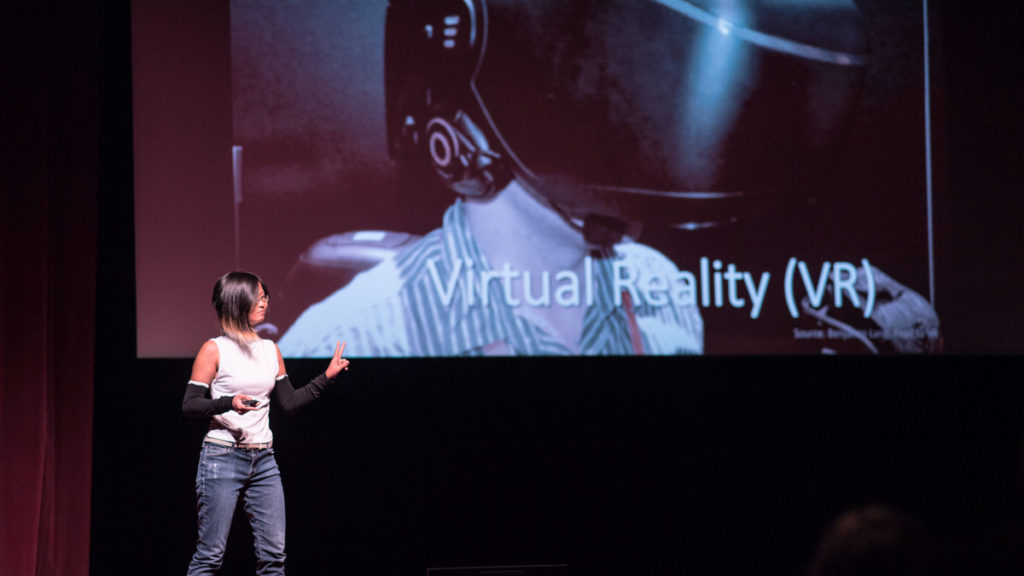
Seeing how tight-lipped the VR industry (and to a certain extent, the VFX industry as well) was about their processes, right now I am democratizing those tips, tricks and insights I’ve gained from working in both Hollywood VR and VFX through open online content and educational courses. You may find some of these insights here, including a few free courses containing valuable industry information:
a. VFX Compositing with Nuke: Invisible Visual Effects
b. VFX Compositing with Nuke: The Complete 2D Edition
c. VFX Production On-Set: Becoming a Visual Effects Supervisor
indieactivity : Describe your work as a VFX/VR non-traditional filmmaker against film/cinema VFX collaboration for traditional filmmaking?
Vicki Lau : I’m not sure I understand what you are trying to ask in this question. Personally, for me, I don’t really see a difference between non-traditional and traditional filmmaking in terms of collaboration. The bottom-line is to create, craft and ultimately sell a story to be told – regardless of the type of film to be made. I suppose one could say that my work stays the same or that I am highly adaptable when it comes to fitting my skills in VFX and VR to the particulars of a project.
indieactivity : Detail the day-to-day process on a project (you should choose the project that suits you) working with your closest collaborator (What is this person’s function?)?
Vicki Lau : Well, when I was working at the studios for Marvel’s Guardians of the Galaxy or DC’s Aquaman for example, I would generally check in with my list of VFX tasks for the day. If I had something to be done from the previous day that’s still on my plate, I get to it; otherwise, it’s mostly a list of new shots to be executed. Depending on each studio’s protocol as well, there would occasionally be a pep rally organized by the team lead or a check-in to get a pulse on where all artists on the team are at, in general, with regards to their VFX tasks. The closest collaborator would thus be my immediate team lead or VFX post-production supervisor on the project.
Related Story: Vicki Lau – The Experienced Working VFX-VR Artist Interview
indieactivity : Your work is critical in filmmaking! What were your tasks on a film project? Let’s say, “The Walking Dead”?
Vicki Lau : That was a fun one! And sometimes, being a VFX artist (in this case, a VFX compositor) allows you to solve so many different problems using the VFX skills you possess. For Season 4 of The Walking Dead, I was basically involved in minor (or tedious) tasks like rotoscoping to removing logos and some compositing of the gore and muzzle flashes you see in the final episodes. Again, the variety is huge so it’s hard to list all VFX tasks involved in that project – or any project.
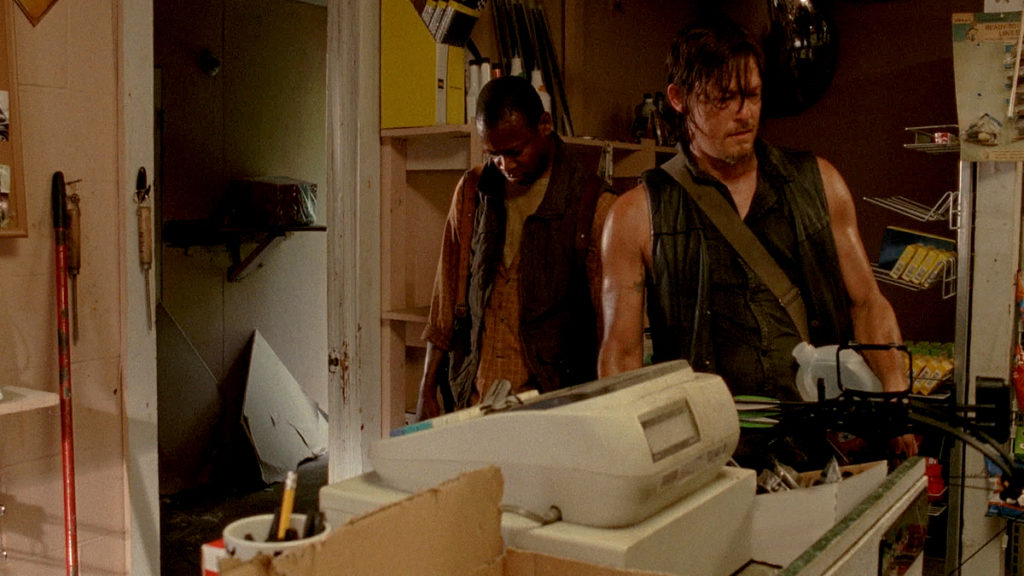
indieactivity : VR consumption is fundamentally different to that of traditional film/cinema. How does VR filmmaking influence the VR Storytelling, does it present the same influences as in traditional film/cinema?
Vicki Lau : It all goes back to story, story, story. I’ve come to learn from experience that it doesn’t matter how cool or unique your VR experience is – if it lacks a story, to a certain extent, it’s as good as a film that has no plot direction.
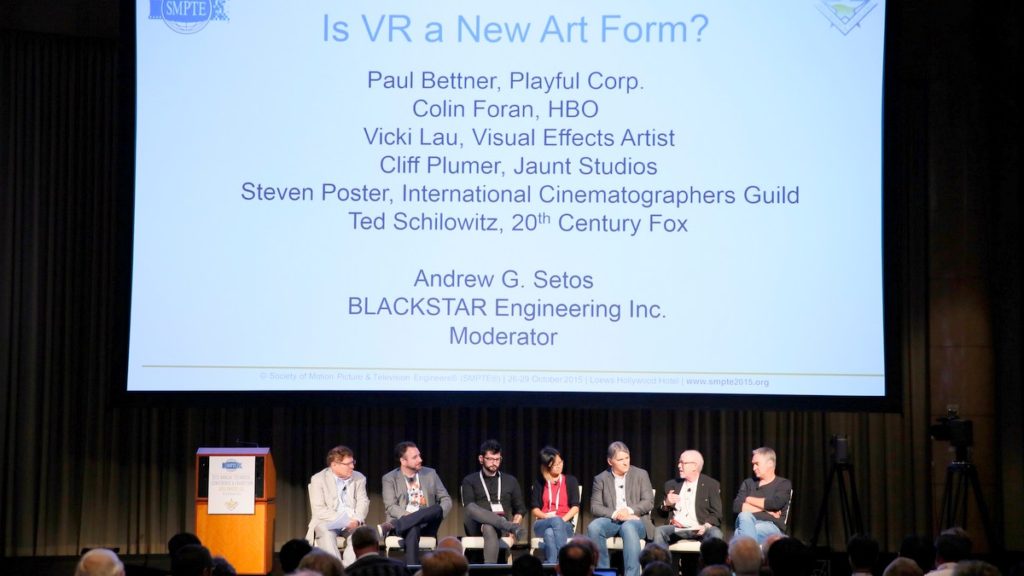
To clarify, I’ve worked on various types of VR projects from narratives to experiential, experimental and of course, games. Hence, my take on how VR influences VR storytelling is that as a filmmaker, you should only be using VR if you believe that using VR is a fundamental aspect of telling that story. I’ve seen VR films where the focus of having that VR film even exist was because they simply could and that the filmmakers thought it would be cool to do it in a new medium such as VR. It’s not cool if your story flops.
indieactivity : If cinema is the art of playing with time, VR is the art of playing both with time and space. Do you think VR will outpace traditional filmmaking in the next 10 years or will it compliment it?
Vicki Lau : From my experience working with VR, which has involved both VR filmmaking, VR games and VR experiential experiences, I would say that VR would not outpace traditional filmmaking. Again, they are simply two different vehicles to achieve a vision or tell a story. As for complementing it, I think it would be slightly redundant unless the VR tool and medium itself was integral to the story already told by the traditional film in question.
indieactivity : What would your role be if you had been in cinema collaborating with D. W. Griffith & Charlie Chaplin (silent film), Orson Welles & Alfred Hitchcock (film noir), and John Huston (Visual Artist) and or John Ford?
Vicki Lau : Whatever they want me or need me to be.
indieactivity : Lucas wanted his 1977 film Star Wars to include VFX and built ILM. What is your plan with VFX/VR? Is it educational? Entrepreneurial? Both? What else?
Vicki Lau : Haha, well, in the grand scheme of things, I prefer executing my plans rather than telling them. So, I guess we’ll just have to wait and see.
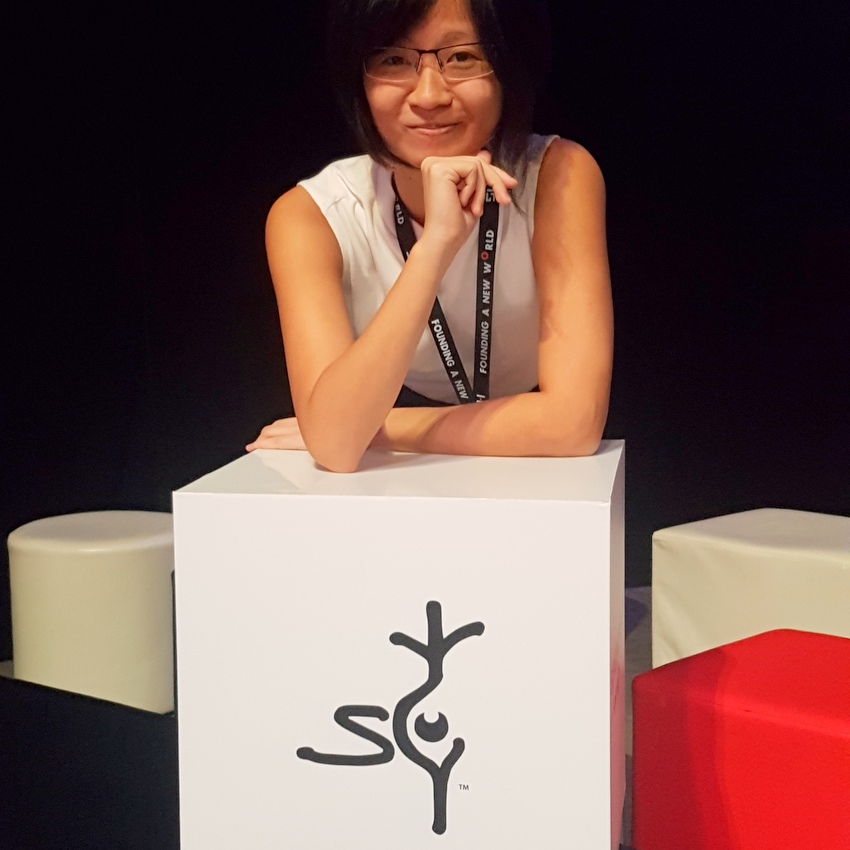
For now, what I can say is that I am continuing to democratize and share my knowledge in VFX and VR through online content and educational courses. As of the publishing of this article, I currently teach over 48,000 students across 177 countries – including India, China, parts of Russia and of course, the United States. I enjoy sharing my insights and tricks of the trade so I hope to see and interact with some of your readers in my courses!
indieactivity : The VFX industry has come a long way from THX1138 (1971 Sci-fi/Drama) and Star Wars. Today it’s still driven by technology, take us through a short history of the industry progress from your view?
Vicki Lau : Well, it’s a very long history there. Let’s just say that technology keeps getting better but laws, systems and industry hierarchies/ structures are slow to change. Ultimately, visual effects will always be driven by the story first, technology second. That’s probably how the industry would progress as well – with more unique or interesting ways of storytelling, the technology gets developed to follow suit. We’ve seen what happens when filmmakers or productions try to fit technology to the story (e.g. stereoscopic 3D movies or 3D TV), it doesn’t usually work because the technology has to supplement the story, not be the main focus or driving force behind it.
indieactivity : ILM created the OpenEXR format and invented IMoCap. It runs the largest render farm; Death Star. How do VFX companies finance, re-finance and/or stay in VFX business. Do you think you can build an ILM-type business? Is it feasible? Is it necessary?
Vicki Lau : Interesting question – and dilemma. Most VFX companies (almost all even, perhaps) are using the same business model of ultimately relying on the budgets of the production to fund their manpower and post-production capabilities. Honestly, the VFX studios that stay in business are usually the ones that get the bulk of the high-budget productions. It’s a sad reality but to be brutally frank, most fledgling VFX start-ups don’t survive because you really need to compete with those VFX giants for that capital.
As for me, personally, I have no interest in cloning another ILM. It isn’t necessary and frankly, I have more interesting and unique business ideas to execute upon rather than rehashing somebody else’s business. Of course, if somebody wanted to do that, by all means, go for it. I personally, wouldn’t – I like being original. 😉
indieactivity : The companionship of VFX/VR and filmmaking has spiked, do you think we are at a peak? If we are not, when do you think it will peak?
Vicki Lau : To clarify, I believe VFX and VR are two very different components. Although both are very similar in terms of the technical and creative skills required, both have their own history and development phases when it comes to the filmmaking world.
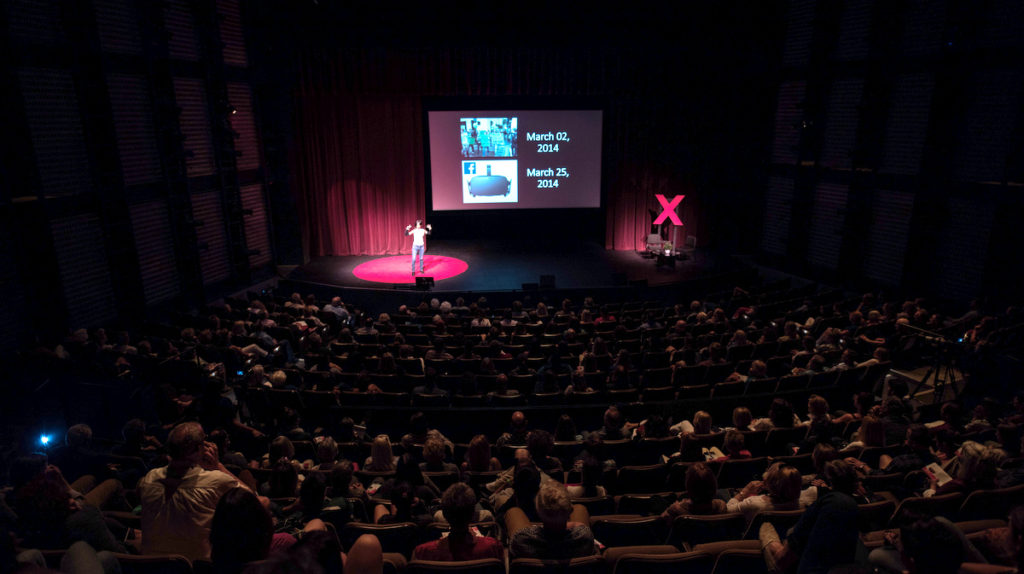
When it comes to VFX, unless some new, disruptive technology comes in and also becomes the mainstream at major production and post-production studios, I don’t think one could classify VFX as ‘peaking’ any time soon. VFX has always been there for a long time, regardless of how they have been executed.
When it comes to VR, again, since technology is changing so rapidly, I don’t believe I would do it justice by speculating ‘peaks’ for the niche. It all depends on consumer behaviour and the sustainability of content for VR, among other factors.
indieactivity : Independent films benefit from low-end VFX tools like After Effects. Introduce us to more tools within this sphere of filmmaking?
Vicki Lau : Well, there is the industry standard Nuke – used by the majority of VFX and post-production houses out there in Hollywood today. The tool itself is quite robust for both VFX and VR work when it comes to live-action films. Contrary to popular belief, there are also big VFX studios that use After Effects to create visual effects – heck, when I was on The Walking Dead, they used After Effects!
Anyone who asks me where I learn my skills for VFX in After Effects or Nuke, I’d honestly tell them that I didn’t do any online courses or stuff like that. Whilst I did go to school when I learned After Effects, I actually learned Nuke on the job, whilst working on Guardians of the Galaxy. In fact, there was a Nuke test for it – I wasn’t nervous but I surprised myself by passing that test when a day ago, I had zero experience in Nuke.
Hate to be a broken record but if you would love to learn directly from me for both tools, I’d direct you to my courses here. We have freebies too:
a. VFX Compositing with Nuke: The Complete 2D Edition
b. VFX Compositing with Nuke: Invisible Visual Effects
c. VFX Compositing with After Effects: The Complete Edition
indieactivity : What is your experience working on story, screenplay, production, premiere and the marketing in independent film?
Vicki Lau : Assessing myself honestly, I would say I could always gain more experience in all aspects of the production process. Given how the world is constantly changing, previous experiences, while useful, sometimes become more of a hindrance than a benefit.
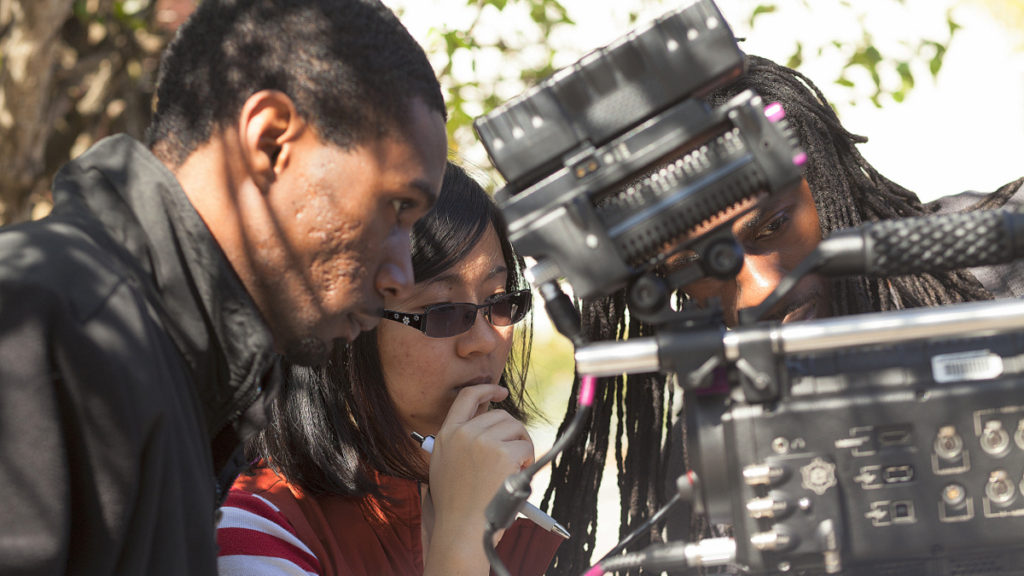
Personally, I’ve always been great at organizing my productions from pre-production to post. The films I’ve produced thus far have never gone over-budget and neither were they inappropriately budgeted to begin with. I’m sure I’d make any investors or executive producers happy with that, haha. I would say I have less experience in premieres and the marketing side of things given that my last experience with marketing films was in 2014. However, having worked on other non-film types of projects (e.g. games, online materials, workshops) and marketed those instead, I’d love to gauge where I am at today when it comes to marketing indie films.
indieactivity : Do you always have to work with a crew? Or do you go solo? Are you a 3D generalist in projects? Where do you jump in during most filmmaking pipeline?
Vicki Lau : It depends on the project itself. My largest production involved about 40 people whereas my smallest was, well, just me. I am a 3D generalist, yes, but as a producer I do believe in selecting the best person for the job. As for where I would typically come in, as a VFX artist or supervisor, I’d prefer being involved as early as pre-production. Some filmmakers make the mistake that VFX is an after-thought – unless you have unlimited funds, it’s best to plan VFX right from the beginning. Realistically however, I’d find myself jumping in during post-production of other filmmakers’ projects. Not how I would have organized my own productions but they’re the producers of their own films, so as far as I know, I’m just there to do my VFX job, not judge.
indieactivity : Do you have a production company – what was the motivation for its formation?
Vicki Lau : I had a VR startup for about 2 years – I suppose you could call it a production company. I founded that company in pursuit of creating a VR experience that allows its users to re-write and re-design a reality of their choice. Interestingly, a few months after I’ve wrapped it up, Facebook announced that it was launching something similar. Honestly, they had the traction and user base we didn’t.
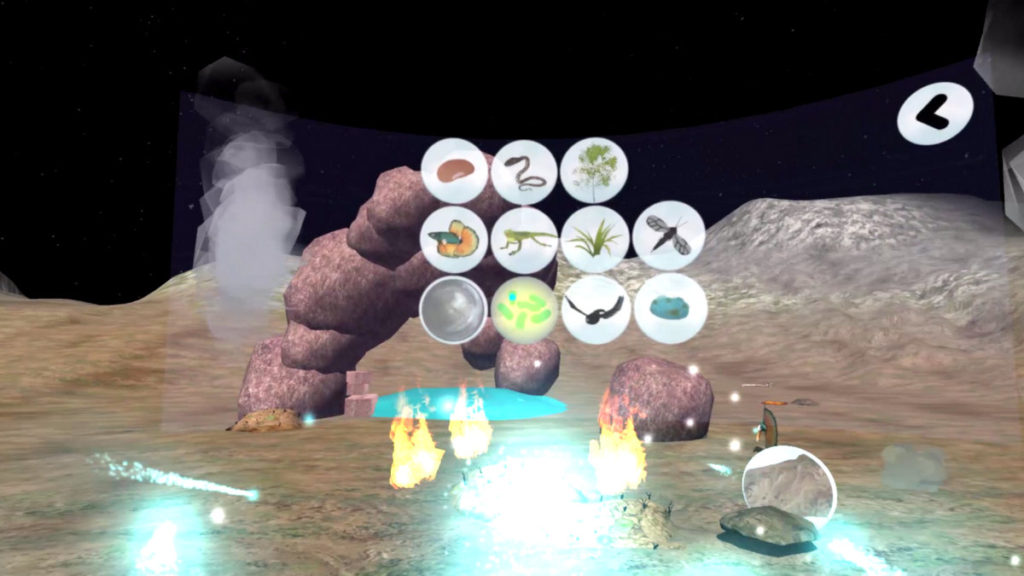
indieactivity : What was the first project out of the gate?
Vicki Lau : If we are talking about my first United States production it would be my directorial debut The Painter, which was made with about 40 people, including a few remotely-based artists working on post-production and distribution/ marketing. That was a fun experience since not only was it my first time with directing (meh… to be honest, I prefer producing, haha) but the film also made the festival circuit and got screened at three film festivals (two in the United States, one in my hometown of Singapore).
If we are talking about VFX, I would say it’s most probably an AFI production I worked on – First in Flight – alongside a small VFX team. It was also my first red carpet experience as a VFX person so, that was pretty neat.
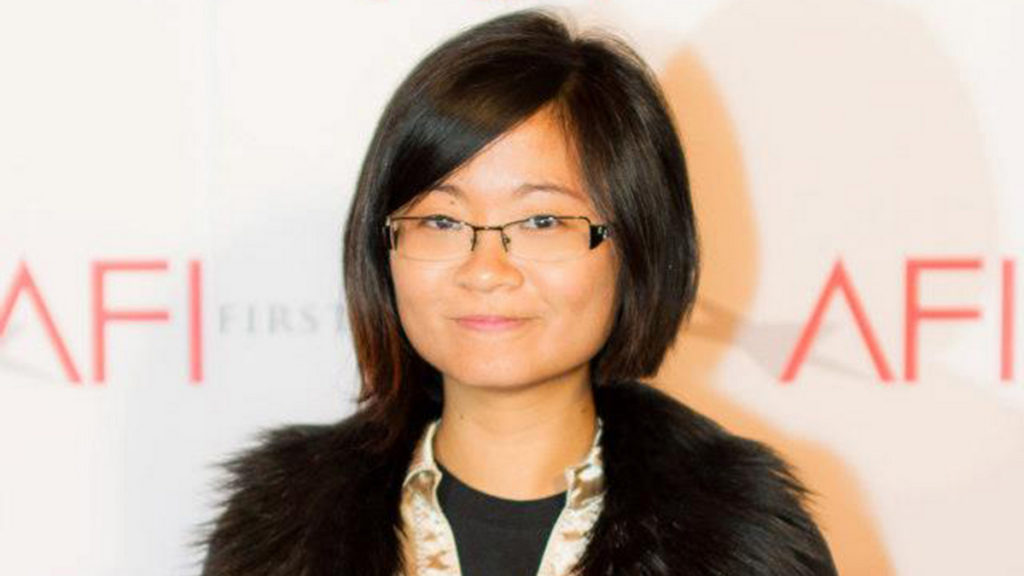
indieactivity : You must donned several hats on a low-medium budget projects, what measure of input: intellect, effort, tenacity, skill (…you know better), does it take to put out all these qualities to get a project done?
Vicki Lau : Ah, haha… there have been many fallen dreams and ideas I have heard over the years of people from the industry “wishing they made their films” or their projects are “always in the works.” Whilst I understand why some projects don’t get made or never get finished, I personally cannot relate since I’m one of those people that would feel extremely uncomfortable with unfinished business (especially if it’s my own idea or the project is of my own volition).
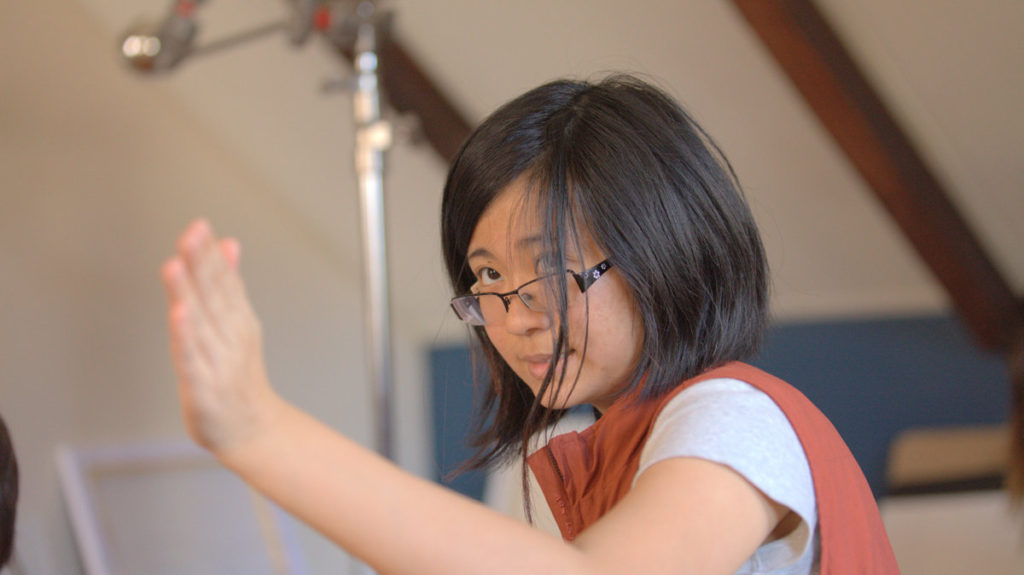
The ability to see through something all the way to the end then becomes an asset. It doesn’t matter how much talent or money you have, if you cannot finish what you start (or if you never start and it’s been about 10 years), you’re no good anywhere. This is also a trait I look for when recruiting people to be a part of my project and it makes it easy to weed out all the nonsensical big talkers, regardless of how much talent or money they could potentially bring to my project.
indieactivity : What about independent filmmaking business do you struggle with?
Vicki Lau : As someone who is not a fan of social media, I found the promotional side of the business to admittedly be a bit more challenging than it would be for most. I generally value my privacy and I don’t like putting my “personal business and activities” out there for people to see. Whilst I probably would have no issues promoting my work and productions (or letting them promote themselves, which I find that has usually been the case), I objectively know that I am not an expert and not a fan when it comes to using social media in any way, shape or form. Of course, as a good producer, I would then hire someone to fill that gap – someone that lives, breathes and eats that kind of thing.
indieactivity : Where do you think your strengths lie as a VFX/VR artist or producer?
Vicki Lau : I find that being a perfectionist isn’t a bad thing if you are a VFX/VR artist. The job requires that sort of meticulousness to detail and a sharp eye when it comes to detecting and crafting visual effects. Haha! it’s funny because now even when I simply do video edits, I’d find myself feeling unsettled whenever I catch a pop frame or a misaligned frame in the edit. It’s become ingrained into my mind (and eyes, apparently).
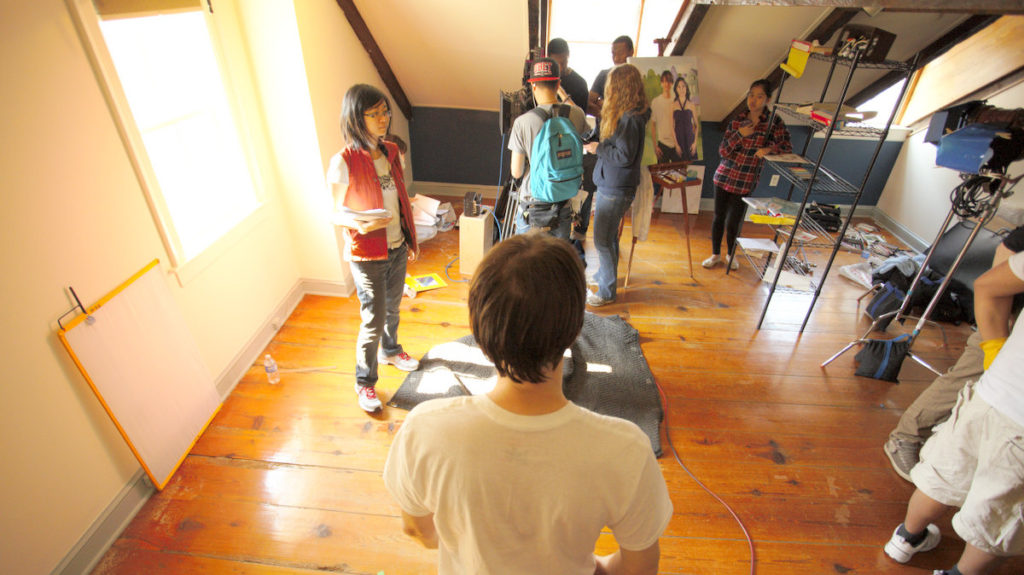
As for strengths as a producer, I love being tasked with challenging assignments or productions where I am forced to be more resourceful than usual. Whilst I would never over-promise my director with the sun and the moon, my director can definitely trust that I will exhaust all possible avenues to achieve his/ her vision and to secure the resources in a timely and budgeted manner. The stakes are even higher when that director is myself, haha.
indieactivity : Do you think your work can sell a project? Often if VFX is done properly it goes unnoticed. How much media attention do you think VFX artists need?
Vicki Lau : VFX artists and media attention don’t really mix. Unless you have a specific goal to achieve outside of VFX (or have an entrepreneurial bent), I find that VFX artists are usually happy where they are at. The key that sells a project is a great story, executed well.To a large extent, I strongly believe that a great story will sell itself – if it is done properly. Fancy visual effects usually fail if the story flops. It is all about t
The story and its execution. VFX artists are simply the supporting cast, for the most part. Hence, if I seek out collaborations or to work on potentially-promising projects, it’s usually because I offer much more than just VFX alone.
indieactivity : What else have you got in the works?
Vicki Lau : Most of them are confidential! But I can say that I am creating more online content and courses to democratize the VFX insights I have gained from Hollywood. Ultimately, I love giving back to filmmaking communities all over the world so you can expect to see more content and courses from me focusing on filmmaking techniques and tricks.
If you join us with an open-mind & guns ready for learning, here are a few that you may be interested in:
a. VFX Production On-Set: Becoming a Visual Effects Supervisor
b. VFX Rotoscoping 101 with After Effects and Mocha
c. VFX Compositing with After Effects: The Complete Edition
Tell us what you think of the interview with Vicki Lau. What do you think of it? What ideas did you get? Do you have any suggestions? Or did it help you? Lets have your comments below and/or on Facebook, or Instagram! Or join me on Twitter.
Vicki Lau Socials
Website
IMDb
Twitter
Instagram
YouTube
MORE STORIES FOR YOU
Richard Green Documentary, ‘I Know Catherine, The Log Lady’: Premiere in NYC, LA May 9th
Lynchian Doc I Know Catherine, The Log Lady Makes Hollywood Premiere 4/17, Rollout to Follow
In Camera by Naqqash Khlalid Launch on VOD April 29
Naqqash Khlalid’s Directs Nabhan Rizwan. In Camera stars an EE BAFTA Rising Star Award Nominee.
2025 Philip K. Dick Sci-Fi Film Festival Award Winners Announced
Vanessa Ly’s Memories of the Future Awarded Best PKD Feature
Dreaming of You by Jack McCafferty Debuts VOD & DVD for April Release
Freestyle Acquires “Dreaming of You” for April 15th Release
Hello Stranger by Paul Raschid set for London Games Festival & BIFFF
The film Is set for an April 10th Premiere at The Genesis Cinema in London (LGF) and BIFFF
Daydreamers Official Trailer by Timothy Linh Bui: Released by Dark Star Pictures
Daydreamers Vietnamese Vampire Thriller – May 2nd release









